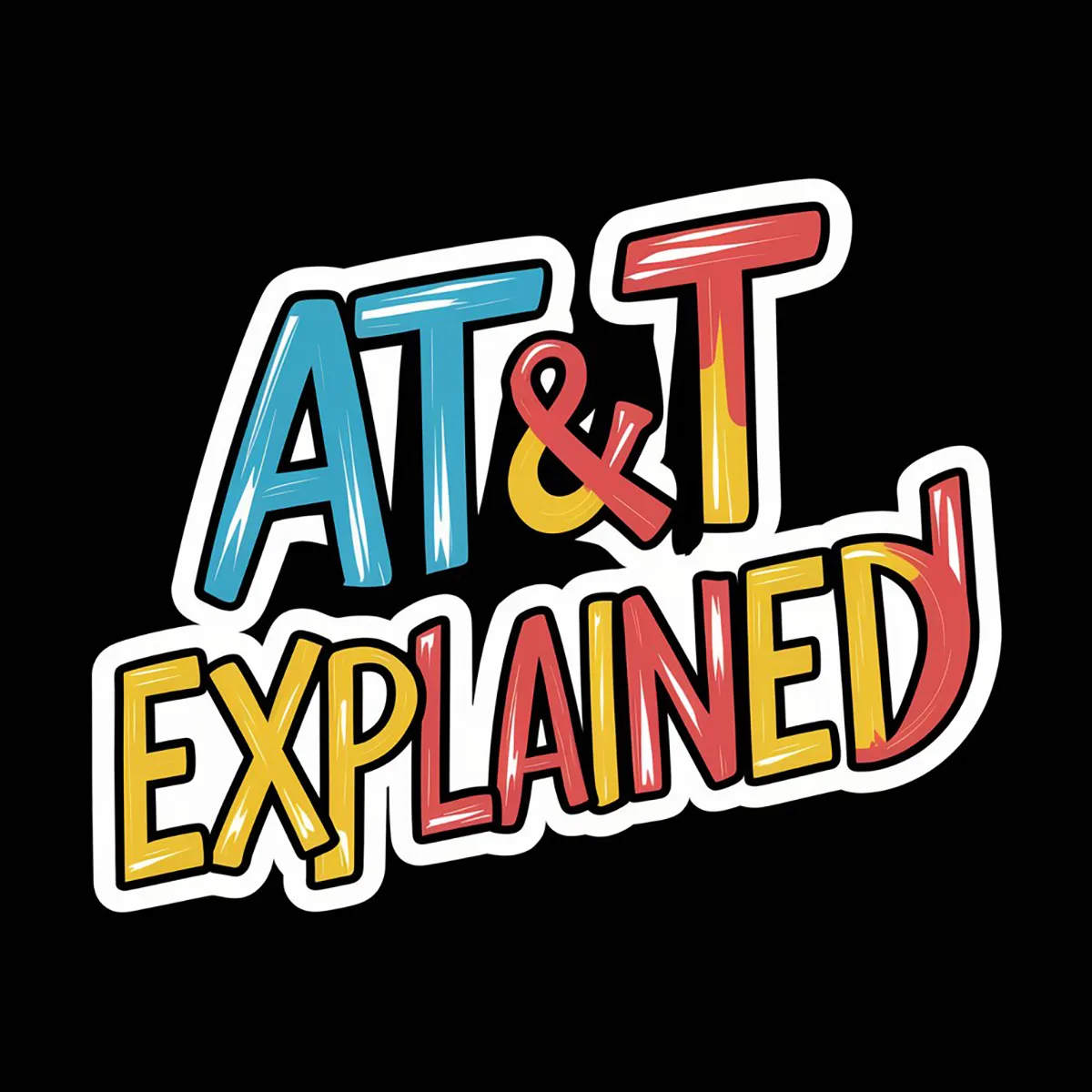Last update on 2024-04-15
AT&T (T) Explained
An Overview of T: Its Business Strategy, Core Products, Major Competitors, and Essential Insights into its Role in the Telecom Services Industry
The wireless business contributes about two thirds of AT&Ts revenue following the spinoff of WarnerMedia. The firm is the third-largest U.S. wireless carrier, connecting 69 million postpaid and 18 million prepaid phone customers. Fixed-line enterprise services, which account for about 20% of revenue, include internet access, private networking, security, voice, and wholesale network capacity. Residential fixed-line services, about 10% of revenue, primarily consist of broadband internet access service. AT&T also has a sizable presence in Mexico, serving 21 million customers, but this business only accounts for 2% of revenue. The firm still holds a 70% equity stake in satellite television provider DirecTV but does not consolidate this business in its financial statements.

Current Business Strategy
As of the latest updates till 2023, AT&T's strategy focuses on streamlining its operations to emphasize its core competencies in telecommunications and broadband services. After divesting from its media and entertainment assets, the company aims to strengthen its position in the 5G network space, enhance its fiber broadband infrastructure, and leverage these capabilities to provide superior connectivity solutions to its customers. Efforts to reduce debt and improve operational efficiencies are also key components of this strategy.
Most known Products
Here is the list of the 5 most well-known products of AT&T (T):
- AT&T Fiber: A high-speed broadband internet service that delivers fast internet speeds for residential and business customers, utilizing fiber-optic technology.
- AT&T Wireless: Mobile phone service providing a range of options from prepaid to unlimited plans, leveraging AT&T's nationwide network coverage, including access to 5G networks.
- DIRECTV (Prior to 2022 Divestiture): A satellite television service that offered a wide variety of live and on-demand TV channels, sports packages, and movie options. Note: AT&T completed the spin-off of DirecTV into a separate entity in 2022.
- AT&T Internet: Broadband service providing reliable, high-speed internet access to customers, using DSL technology in areas where fiber is not available.
- AT&T Business: A suite of business solutions including wireless, cloud, cybersecurity, and Internet of Things (IoT) services tailored for small to large businesses, aiming to support their operational needs and digital transformation efforts.
Competitors
Here is the list of the main 5 competitors of AT&T (T):
- VZ (VERIZON COMMUNICATIONS INC.): Verizon is a direct competitor in both the wireless and broadband markets, offering similar products and services such as mobile phone service, 5G network access, and fiber-optic internet, leading to competition for market share in these sectors.
- TMUS (T-MOBILE US, INC.): Since its merger with Sprint, T-Mobile has become a strong competitor in the telecommunications industry, especially in the 5G wireless network space, posing stiff competition to AT&T's wireless services.
- CMCSA (COMCAST CORPORATION): Comcast competes with AT&T in the broadband internet and business services markets through its Xfinity and Comcast Business brands, offering high-speed internet, cable TV, and VoIP phone services.
- CHTR (CHARTER COMMUNICATIONS, INC.): Charter, operating mainly under the Spectrum brand, is a competitor in the broadband, cable TV, and telephone service markets, directly competing with AT&T's fiber optic and internet services in various geographic locations.
- TMUS (DISH NETWORK CORPORATION): Although primarily known for its satellite TV services, DISH has entered the wireless market with its acquisition of Boost Mobile and the construction of a 5G network, positioning it as an emerging competitor in the telecommunications space against AT&T.
Obligatory risk notice
We would like to point out that the contents of this website are for general information purposes only and do not constitute recommendations for the purchase or sale of specific financial instruments, and therefore do not constitute investment advice. In particular, marketstorylabs.com and its creators cannot assess the extent to which information / recommendations made on the pages correspond to your investment objectives, your risk tolerance and your ability to bear losses. Therefore, if you make any investment decisions based on information on the site, you do so solely on your own responsibility and at your own risk. This in turn means that neither marketstorylabs.com nor its creators are liable for any losses incurred as a result of investment decisions based on the information on the marketstorylabs.com website or other media used.